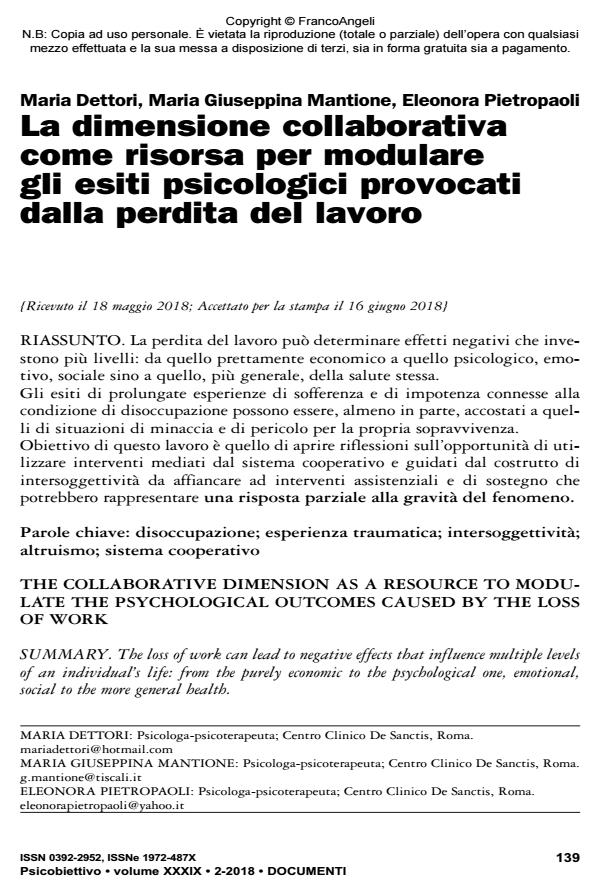The collaborative dimension as a resource to modulate the psychological outcomes caused by the loss of work
Journal title PSICOBIETTIVO
Author/s Maria Dettori, Maria Giuseppina Mantione, Eleonora Pietropaoli
Publishing Year 2018 Issue 2018/2
Language Italian Pages 0 P. 139-153 File size 112 KB
DOI 10.3280/PSOB2018-002010
DOI is like a bar code for intellectual property: to have more infomation
click here
Below, you can see the article first page
If you want to buy this article in PDF format, you can do it, following the instructions to buy download credits

FrancoAngeli is member of Publishers International Linking Association, Inc (PILA), a not-for-profit association which run the CrossRef service enabling links to and from online scholarly content.
The loss of work can lead to negative effects that influence multiple levels of an individual’s life: from the purely economic to the psychological one, emotional, social to the more general health. The outcomes of prolonged experiences of suffering and impotence connected to the condition of unemployment can be, at least in part, combined with those situations of threat and danger where the individual is required to fight for their survival. This work aims to open reflections on the opportunity to use interventions mediated by the cooperative system and guided by the construct of intersubjectivity to be added to the more common assistance and support interventions that only represent in part an efficient response to the gravity of the phenomenon.
Keywords: Unemployment; Traumatic Experience; Intersubjectivity; Altruism; Cooperative System.
Maria Dettori, Maria Giuseppina Mantione, Eleonora Pietropaoli, La dimensione collaborativa come risorsa per modulare gli esiti psicologici provocati dalla perdita del lavoro in "PSICOBIETTIVO" 2/2018, pp 139-153, DOI: 10.3280/PSOB2018-002010